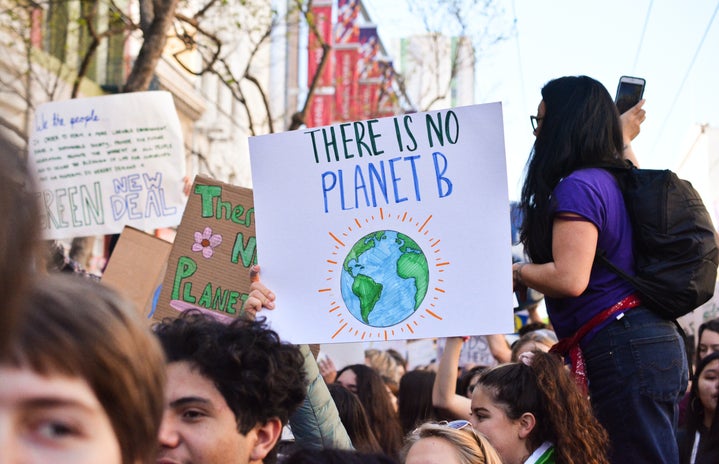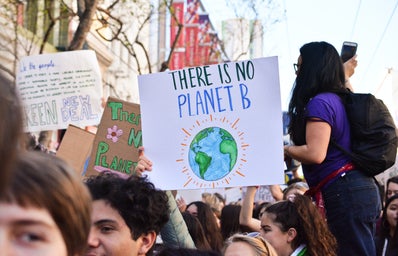We are the generation who will have to solve the climate crisis. It is an unavoidable fact that many millennials and gen Z’ers face today. Because it feels like such a big task, it’s not always easy to know how to help make an impact and create change.
The average American would each need five earths to satiate their level of consumption. (News flash: we only have one earth.) If we don’t begin to make changes, institutional and individual changes in habits, catastrophic events like wildfires, drought, rising sea level, and species decline will only worsen. (If you’d like to find out how many earths’ you would need in a year, you can find out at https://www.footprintcalculator.org/.)
The good news is, it seems like the world is getting on board with making lasting changes to save our precious source of life. As members of a first world country, we especially have the power to inform change in our communities, as well as in our own households. With a few lifestyle changes, you can make a bigger impact than you might have previously thought.
- Avoid Single-Use Plastics like the Plague
-
Plastics are one of the most dangerous chemical materials to litter our earth. Over 50% of plastic produced is single-use; that’s your iced Starbucks cup and straw, your grab-and-go sandwich container, and the plastic bag you’re carrying your lunch in. Even if these materials are recyclable, many people do not actually recycle correctly, and these materials still end up in the landfill, or more likely, the ocean. Annually there are more than 8 million tons of plastic alone dumped in our oceans.
Thankfully, there are more than enough reusable (and cute!) products to replace single-use plastic options. Carry around your own to-go cup for when you need that mid-afternoon cup of coffee or tea on campus. Keep some reusable straws at home, as well as in your backpack or purse for on the go (I like these ones from Urban Outfitters.) There are so many options to choose from these days––do some research, invest in some nice reusable products, and ditch those plastics like a toxic boyfriend.
- Buy used before new (one word: vintage!!)
-
Fast fashion is a major culprit of climate change. The fashion industry is responsible for more than 8% of the world’s carbon emissions, and most of the clothing produced by companies such as Forever 21 end up in the landfill in less than a year.
The silver lining here is, vintage is way more stylish anyhow. Denver has so many amazing vintage clothing shops and consignment stores. Check out a list of some of the top vintage stores around Denver on the city’s website. You’ll be doing your wardrobe and the earth a favor by buying used before new.
- Eat more plants (tastes better than it sounds, promise)
-
Whether you’re an omnivore, a pescatarian, a vegetarian, a keto supporter, or a vegan, one of the best things to do for the planet is to eat a diet that is mostly based on plant foods. What does ‘plant foods’ mean? These are vegetables, fruits, nuts, legumes, beans, and grains.
Science has shown that a vegan or mostly plant-based diet is optimum for planet health (as well as human health, but that’s a story for another time). A person who adopts a vegan or mostly plant-based diet produces 50% less carbon than a meat-eater. Cattle grazing is the highest emitter of carbon emissions, with cows emitting around 150 billion gallons of methane (the worst greenhouse gas) per day.
In recent years there has been a huge push for veganism with a number of amazing cookbooks coming out on how to eat vegan or plant-based, along with many popular restaurants offering more vegan options on their menus. I personally eat about a 90% plant-based diet and it’s SO delicious (occasionally I’ll have some cheese). My favorite plant-based cookbooks are Thug Kitchen, Forks Over Knives, and Minimalist Baker. Get creative in the kitchen, try out some new plant-based recipes, and implement at least a few fully plant-based meals a week to cut down your carbon emissions.

With these few changes, you can have a huge impact. I encourage everyone to do more research on simple ways to reduce their carbon footprint and limit their overall consumption. While veganism and reusable straws might just seem like another trend, they are absolutely more than that, and they are here to stay. If sustainability is trending, then I am HERE for it.



